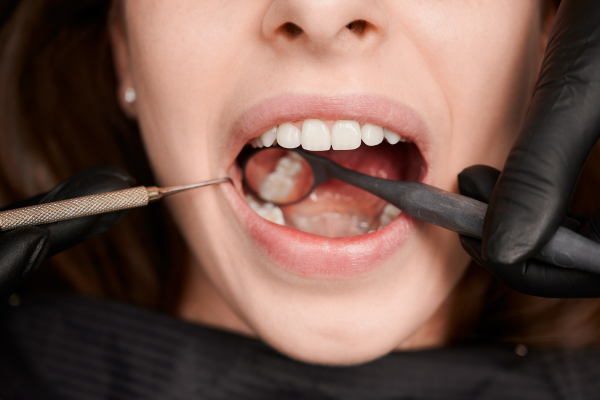There’s a reason dental implants are regarded as the gold standard for replacing missing teeth — and it’s not just about aesthetics. Picture this: you’ve lost a tooth, and suddenly everything from eating to smiling feels different. What if there was a way to not only restore your smile but also maintain your oral health, jawbone integrity, and confidence? Dental implants do just that. They go far beyond what dentures or bridges can offer, offering a level of function and stability that feels almost indistinguishable from natural teeth.
What Are Dental Implants and How Do They Work?
Dental implants are specially designed prosthetic tooth roots, typically made of biocompatible titanium. Once surgically placed into the jawbone, the implant integrates with the bone through a process known as osseointegration — a unique biological fusion that provides a solid and permanent foundation for a crown, bridge, or denture.
Unlike removable options, implants do not rest on the gums or rely on adjacent teeth for support. This distinction offers unmatched durability, function, and preservation of bone and facial structure.
Why Do Dental Implants Offer Better Outcomes Than Other Options?
There are several alternatives for tooth replacement, including dentures and bridges. However, these come with compromises. Here’s how dental implants compare:
Comparison Table: Dental Implants vs Bridges vs Dentures
| Feature | Dental Implants | Dental Bridges | Dentures |
| Longevity | 20+ years | 5–15 years | 5–8 years |
| Stability | High (fixed) | Medium (fixed) | Low (removable) |
| Jawbone Preservation | Yes | No | No |
| Affects Adjacent Teeth | No | Yes (requires grinding) | No |
| Comfort | High | Medium | Low to medium |
| Aesthetics | Excellent | Good | Variable |
| Maintenance | Standard oral hygiene | Extra flossing required | Requires daily cleaning |
Dental implants outperform the other two in nearly every category, especially in terms of long-term value and health preservation.
What Are the Unique Attributes That Make Implants Superior?
Dental implants are not a one-size-fits-all solution — they’re custom-fitted and built to last. Some of their standout features include:
- Material: Most are made of medical-grade titanium, known for its strength and compatibility with human bone.
- Stability: Implants act like natural tooth roots, offering a secure base.
- Biocompatibility: The implant fuses with the jawbone naturally.
- Functionality: They restore full chewing capability.
- Aesthetics: Implants are designed to mimic the appearance of your natural teeth.
- Maintenance: No special cleaning products or routines required — just brush, floss, and maintain regular dental visits.
This advanced integration of form and function is what allows dental implants to feel like your own teeth.
What Benefits Can You Expect from Choosing Implants?
Here’s why many patients are opting for implants as their go-to treatment:
- Preservation of Bone Density
The loss of a tooth leads to bone resorption. Implants stimulate the jawbone, preventing deterioration. - Prevention of Facial Collapse
Dentures often lead to a sunken facial appearance over time due to bone loss. Implants maintain facial integrity. - No Damage to Neighbouring Teeth
Bridges require filing down adjacent teeth for support. Implants don’t. - Improved Comfort and Speech
Implants don’t slip or cause discomfort the way dentures might. They allow for clear, confident speech. - High Success Rates
According to clinical studies, dental implants have a long-term success rate of over 90%, especially when placed in healthy candidates by experienced professionals.
What Are the Common Alternatives to Dental Implants?
Although implants are often the best option, it’s important to be informed about the alternatives:
- Removable Partial Dentures: These rest on the gums and are held by clasps to adjacent teeth.
- Tooth-Supported Bridges: Involves grinding down neighbouring teeth to support the false tooth.
- Resin-Bonded Bridges: Less invasive, but weaker and more prone to failure.
While more affordable or quicker in the short term, these options often compromise on longevity, comfort, and oral health.
How Do You Care for Dental Implants After Placement?
Looking after your implants is no more complicated than caring for your natural teeth:
- Brush at least twice a day with a soft-bristled brush
- Floss daily, especially around the implant crown
- Attend regular check-ups and professional cleans
- Avoid using your teeth as tools (e.g. opening bottles or tearing packets)
- If you grind your teeth, a custom splint can protect the implant and surrounding teeth
With proper care, dental implants can remain healthy and fully functional for decades.
Are Dental Implants Suitable for Everyone?
Most healthy adults are suitable candidates. Ideal candidates will have:
- Good general and oral health
- Adequate jawbone volume
- No ongoing gum disease
- A commitment to maintaining oral hygiene
Even if you’ve suffered some bone loss, additional procedures like bone grafting may make implants a viable option.
Why Choose Terrigal Beach Dental + Implant Centre for Your Implant Journey?
At Terrigal Beach Dental + Implant Centre, we understand that replacing a missing tooth is about more than aesthetics — it’s about restoring confidence, comfort, and long-term health. Our team combines advanced diagnostic tools with gentle care to tailor a treatment plan that suits your individual needs.
What sets us apart is not just our clinical excellence, but our unwavering focus on patient experience. From the moment you step into our practice, we aim to make your journey seamless, informative, and stress-free. Whether you need a single implant or a full-mouth rehabilitation, you’ll be in experienced hands every step of the way.
We proudly serve the Terrigal community and surrounding areas with integrity, professionalism, and a deep commitment to long-term dental wellness. Book a consultation today to explore whether implants are the right option for you.
References
- Australian Dental Association: https://www.ada.org.au
- Better Health Victoria – Dental Implant Information: https://www.betterhealth.vic.gov.au
- Australian Government Department of Health – Oral Health Data: https://www.health.gov.au
Frequently Asked Questions
1. How long do dental implants last?
With proper care, dental implants can last over 20 years, and in many cases, a lifetime.
2. Is the dental implant procedure painful?
The procedure is typically performed under local anaesthetic and is generally well tolerated. Discomfort afterwards is minimal and manageable with over-the-counter medication.
3. Can dental implants fail?
While rare, implant failure can occur due to infection, poor oral hygiene, or medical conditions. Regular dental check-ups help detect any early signs of issues.
4. Will I be without teeth during the healing process?
Temporary restorations can be provided while your implant integrates with the bone, so you’re never left with a visible gap.
5. Are implants safe for older adults?
Yes, age is not a limiting factor. As long as the patient is in good health and has adequate bone, implants are an excellent choice for older adults.
6. Do implants require special maintenance?
Not at all. Just brush, floss, and maintain your routine dental clinic visits — similar to how you’d care for your natural teeth.






